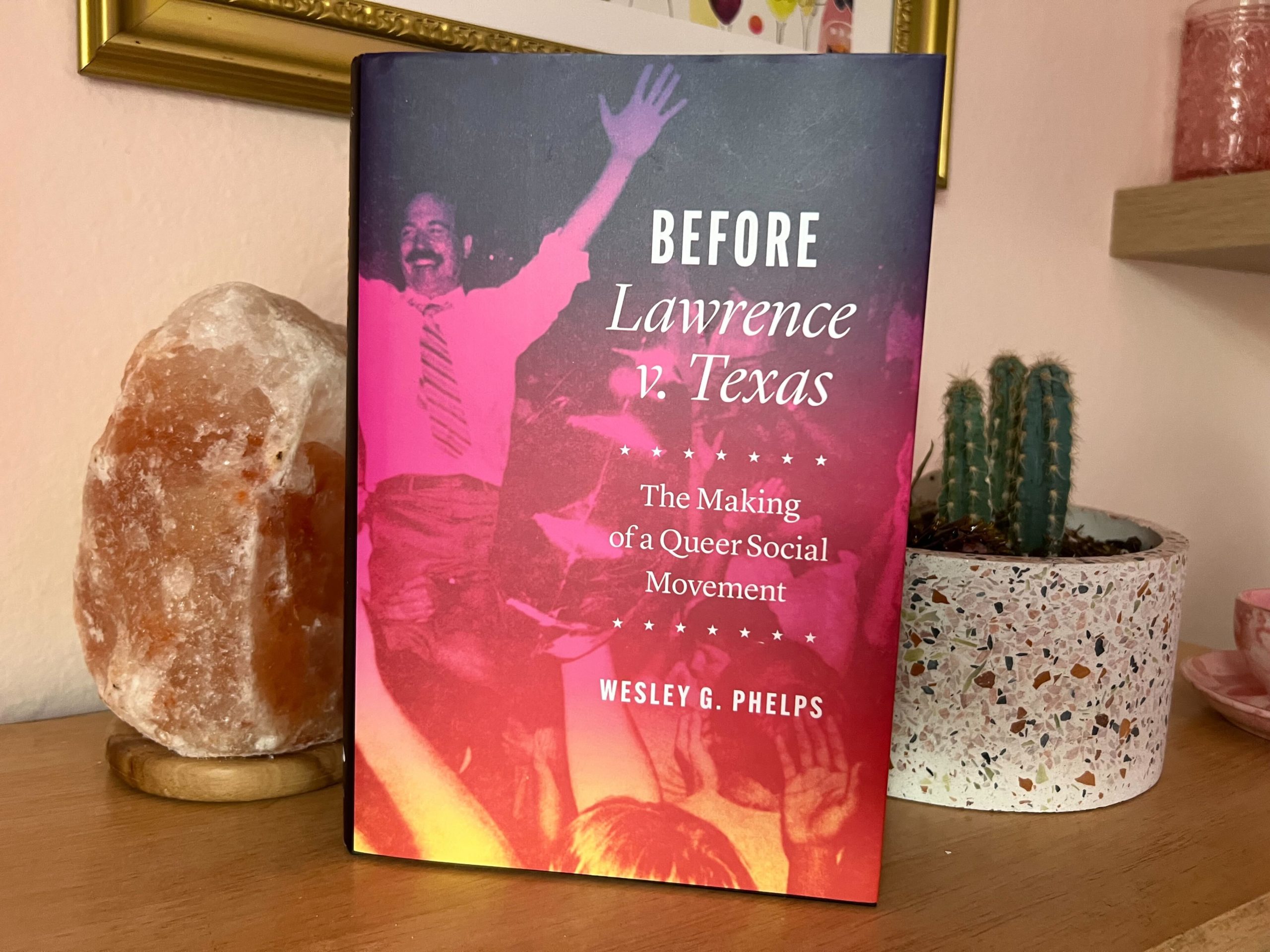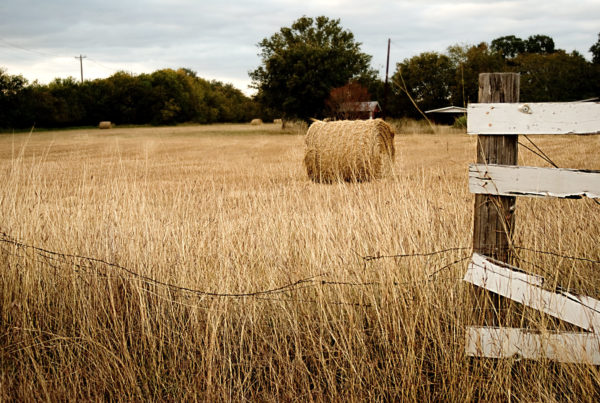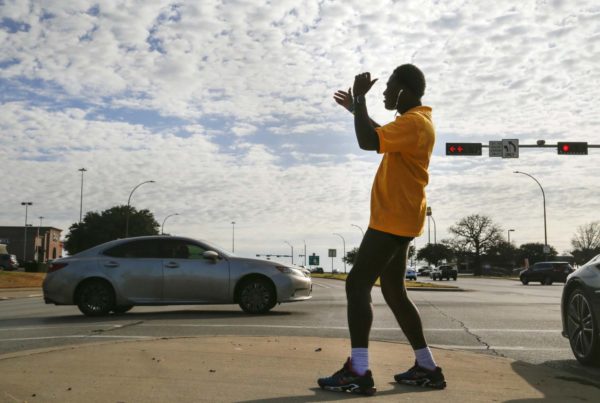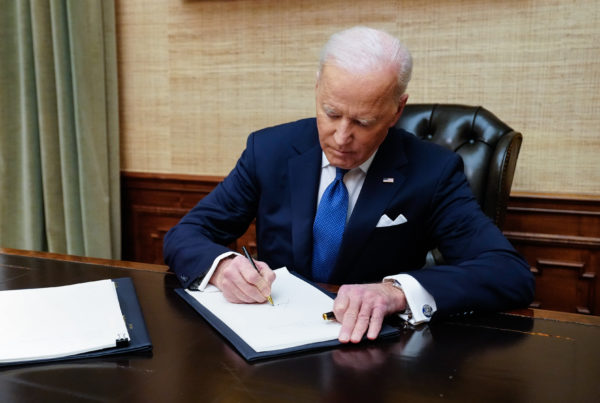When it comes to landmark Supreme Court decisions – change can come quickly.
Though changes resulting from rulings might feel as though they came overnight, the groundwork was likely going on for years – with arguments on both sides made throughout the legal system. This is especially true when it comes to activists in the LGBTQ+ community – particularly those from Texas whose legal battles for equal protection some would say spanned for over a century.
Some of those voices have been included in the new book, “Before Lawrence v. Texas: The Making of a Queer Social Movement,” which chronicles the struggle that eventually led to the striking down of laws prohibiting same-sex sexual activity between consenting adults.
The Texas Standard spoke with the book’s author, as well as history professor at The University of North Texas, Wesley Phelps. Listen to the story above or read the transcript below.
This transcript has been edited lightly for clarity:
Texas Standard: Let’s start out with a bit of background on Lawrence v. Texas. 1998 – that’s where the fact pattern begins here, with two working class gay men near Houston?
Wesley Phelps: Yeah, two guys, John Lawrence and Tyron Garner, were arrested in 1998 on the east side of Houston for allegedly engaging in sexual behavior that violated the sodomy statute at the time – Statute 2106 of the Texas Penal Code – which outlawed oral and anal sex between members of the same sex. They were arrested. They went on to challenge the Texas sodomy law up to the Supreme Court. And that’s how we get Lawrence v. Texas in 2003, which invalidated not only the Texas sodomy law, but sodomy laws like it in 13 additional states.
Well, these two men made history for sure, but there were many legal challenges that paved the way for Lawrence. I wonder if there’s another one in particular which stands out to you that you can tell us about that was critical to getting to Lawrence v. Texas?
Well, the most important case to come before Lawrence v. Texas was known as Baker v. Wade. It was filed by Dallas resident Don Baker in 1979. Don Baker had been arrested for violating the sodomy law, but he challenged it on constitutional grounds. He argued that the sodomy law violated constitutional protections of privacy and equal protection. And initially, a federal district court in Texas did agree with him that the Texas sodomy law, 2106, violated his right to privacy and equal protection.
Unfortunately, on appeal in 1985, the Fifth Circuit Appellate Court in New Orleans overturned that ruling and reinstated 2106, and the Supreme Court refused to hear the case in 1986 – allowing that appellate decision to stand. The reason it’s important is because it really laid the groundwork for the legal arguments and the grassroots activism and the organizational momentum that was required to finally win Lawrence v. Texas in 2003. So Baker v. Wade, and several other cases I document in the book, they really did lay the groundwork for that ultimate victory.
I wonder if we can turn our attention to a case from back in 1974. Maybe you can explain the significance of it. This involved a custody case, a mother who was an out lesbian living with her partner in Dallas in 1974. Could you tell us a bit more about Mary Jo Risher and the impact that case had?
Sure can, yeah. Mary Jo Risher was married for about a decade and had two children. You know, she had always felt like she was different, but she had a coming out process after she was divorced. She ended up meeting a woman named Ann Foreman and they moved in together in Garland, which is a working class suburb of Dallas, and they had their three children living with them. But when Mary Jo Risher’s ex-husband found out about this arrangement, he notified the local family court and demanded that the custody decision be revisited because, according to him, Mary Jo Risher was no longer a fit mother because she was now an out lesbian living with her lover.
This was the first time that a jury decided a custody decision based on the sexual orientation of one of the parents. And the jury ended up taking away her parental rights for her youngest son, who had to then go back and live with his father.
You wrote that the genesis of this book actually came about when you were asked to do a lecture on the question of what is the significance of Lawrence v. Texas. Tell us more about what inspired you to go back in time.
Yeah, that’s true. At my previous university, one of my colleagues, Tom Cox, was in charge of putting together a series of panel discussions asking constitutional questions. And one year he asked me if I would like to present something on Lawrence v. Texas. I said, “sure, I’ll do that.” And the more I started looking into Lawrence v. Texas, the more I realized that we just didn’t know the prehistory leading up to that in 2003. It was almost as if Lawrence v. Texas came out of nowhere. And so what I wanted to do is show that it took decades of organizing and sacrifice to bring about this victory that didn’t just come out of nowhere.
How much do the cases which recognize the rights of LGBTQ+ people, how much do those cases turn on this concept of privacy? And I raise that because obviously there’s been a lot of discussion in the wake of the case that overturned Roe v. Wade, the Dobbs decision, that some of these precedents may be eroded.
Yes. Privacy is at the heart of most of the legal victories for queer equality over the last several decades. Privacy was at the center of Lawrence v. Texas. In fact, the Supreme Court ruled only on the issue of privacy in Lawrence v. Texas, and did not find that the sodomy statute violated equal protection. That was not in the majority opinion. And the victories that have come since then – the repeal of the military policy of Don’t Ask, Don’t tell, marriage equality – these are also dependent on this right to privacy. So the recent Dobbs decision is very troubling because the court has indicated that it is willing to be persuaded that this right to privacy in the Constitution doesn’t extend as far as we thought it did and they’re willing to roll back some decisions. Roe v. Wade, for example, is also based on the right to privacy. And that was rolled back with the Dobbs decision. So I think it’s really troubling considering how important privacy is to this movement for queer equality.
Of course, in more recent headlines, we’ve seen a real focus on drag events, especially those where children might be involved in – you know, book readings and that sort of thing. And there have been lawmakers who have been trying to pass laws that would regulate or somehow restrict those sorts of events. What’s your take on what’s happening in that part of the arena and where do you see that going?
Yeah, I think for a long time, sodomy laws served as a justification for the kinds of discrimination that you’re describing here. And in the wake of Lawrence v. Texas in 2003, I think a lot of people thought that those days were gone. That, by removing this legal justification for discrimination, we would see less and less of it. And what we’ve seen over the last couple of years now is a resurgence of that discrimination.
And I think that’s what makes protecting Lawrence v. Texas even more important, because if the Supreme Court goes in the direction it seems to be going in – rolling back decisions that are based on a constitutional protection of privacy – it’s quite possible that we will see sodomy laws return to states like Texas. And if the sodomy law comes back, then it brings back that legal justification for the kinds of discrimination that we’re talking about. I think that would set a very dangerous precedent. So I think it makes this history all the more important, considering what we’re seeing.













